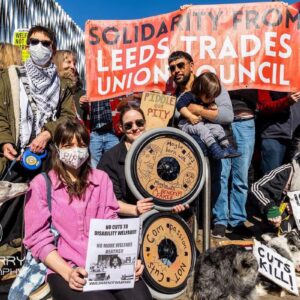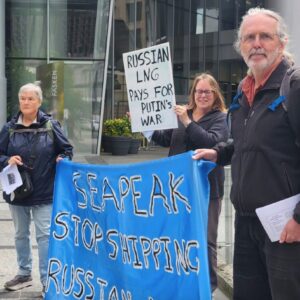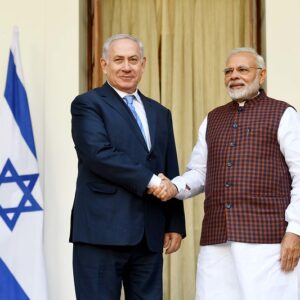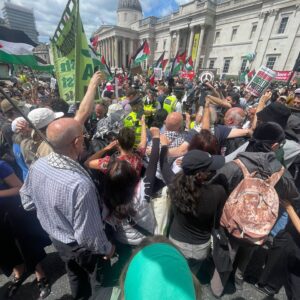This book, For Palestine: Essays from the Tom Hurndall Memorial Lecture Group, was produced over the course of many years as a collective project. When we remember Tom Hurndall, a student at Manchester Metropolitan University who died in 2004 after being shot in the head by an Israel Defence Forces sniper, we remember him as one among many others who put their lives on the line for the Palestinian people.
Tom Hurndall
Tom Hurndall was there working with the International Solidarity Movement, a non-violent collective and, like many others, was picked off, killed. We remember him as a courageous individual, and his particular death prompted us to have these lectures in his name, as someone who was part of a collective struggle. The lectures have taken place since 2005, with generous unpaid contributions from each lecturer who has brought their own expertise to bear on a key question; what must we know about the past so we learn from it and take forward what Tom Hurndall was witnessing when he died.
So, it has been a group of many people over the years, many of them working in the background to support the Memorial Lecture, who now made this book possible, a book only signed with one individual as editor for legal rights reasons. It is important that the book is open access, in the spirit of what Tom Hurndall died fighting for and how he fought.
I can still remember the first lecture back in 2005 in which Dr Salman Abu Sitta described in the question-time after his talk, how he had recently visited the Balfour estate in Scotland, and there he reflected on how the political choices made by this former British Prime Minister had such profound consequences for his own land, Palestine. The 1917 Balfour Declaration divided Palestine and set the scene for its destruction, handing over the land to another people, Jews who fled from their own destruction in Europe.
History
History, every aspect of colonial history, and in this case British colonial control of Palestine, carries traces from the past into the present and the future. You will find close analysis of those traces from many different angles in this book. It is worth remembering that divide and rule is the prerogative of those with power, and Balfour as British Foreign Minister in 1917 found an enthusiastic audience for his declaration amongst antisemites who were keen to be rid of Jews living in Britain.
Our lecturers and contributors to this book include Palestinians and Jews who, in different ways, reflect on and challenge racism in different communities; they speak and write about racism and apartheid in the part of the Arab world governed by the Israeli state in order that we may together transcend it, tackle the material conditions that make it so toxic, deadly. If you do want to make a difference in a part of the world that is governed by an apartheid state, then you need to combine that impetus for change with a measure of careful analysis and, as the contributors do, to make a compelling case for Palestine.
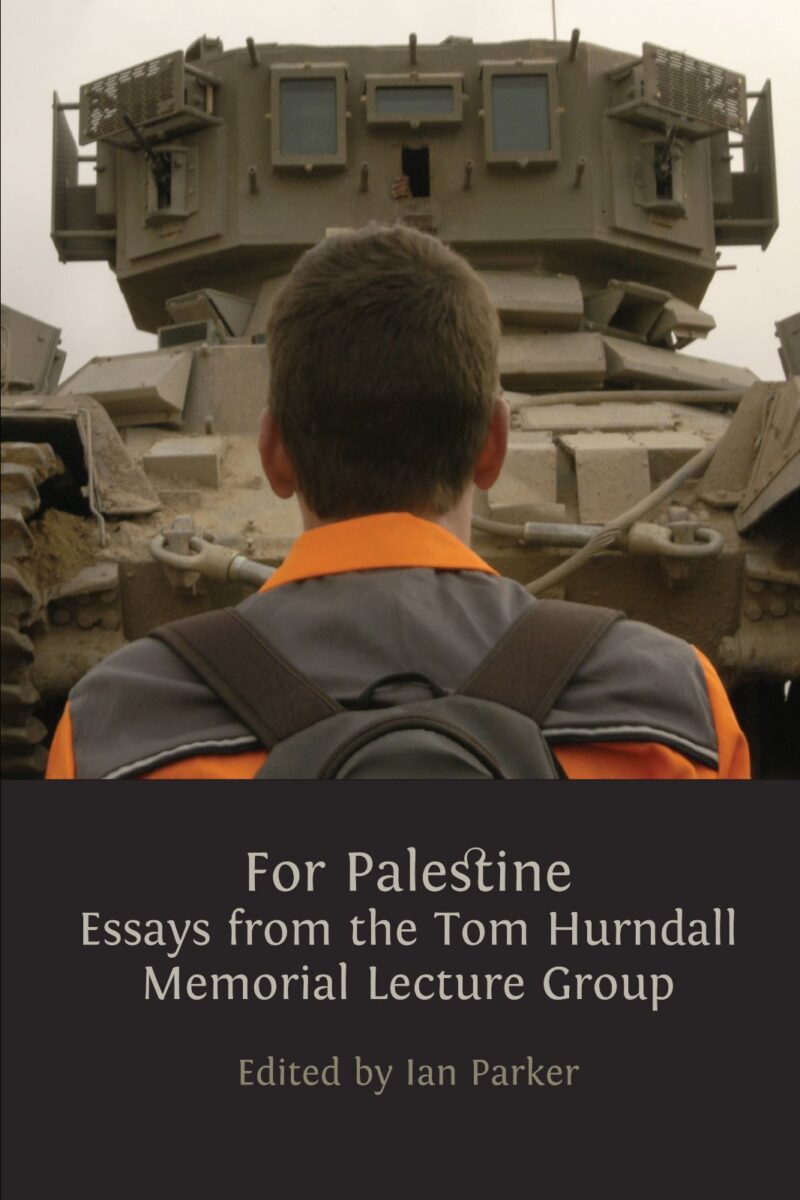
This book brings together sixteen chapters produced for the Tom Hurndall Memorial Lecture in Manchester, and they are quite different scholarly interventions and testimonies of the kinds of struggle the Palestinian people have been engaged in over the years. The lectures and now this book gathers together activist scholars from a number of different academic fields who bring their expertise to bear on the question of Palestine.
Debates
The chapters draw on debates in architecture, cultural studies, history, law, sociology, politics and urban planning, to name only some of the academic disciplines that are referenced in the book. And they draw on activist struggles around autobiography, journalism, personal identity, queer politics and clinical psychoanalysis, among others, practices that aim not only to interpret the world but to change it.
Our prestigious contributors have contributed to the lecture series since 2005, offering a distinctive and varied range of perspectives on the questions that took Tom to Palestine and charting contemporary developments in the region. The lectures gathered together in this book range from the general context for the struggle to specific issues, in explorations of the different forms of oppression that must be tackled if there is to be peace in the Arab world.
The Hurndall Memorial Lecture continues, with details of all the lectures and a download link for the book at the dedicated Tom Hurndall Memorial Lecture website.
Art (53) Book Review (121) Books (114) Capitalism (65) China (79) Climate Emergency (98) Conservative Government (90) Conservative Party (45) COVID-19 (44) Economics (40) EcoSocialism (55) Elections (83) Europe (46) Fascism (56) Film (49) Film Review (68) France (70) Gaza (60) Imperialism (98) Israel (124) Italy (46) Keir Starmer (52) Labour Party (111) Long Read (42) Marxism (48) Palestine (169) pandemic (78) Protest (152) Russia (340) Solidarity (142) Statement (48) Trade Unionism (141) Ukraine (346) United States of America (132) War (368)
Latest Articles
- Arse backwardsArse backwards is an apt way to express how disabled people are treated argues Sandra Wyman
- Stop Seapeak’s sanctions bustingFred Leplat argues that the campaign against Seaspeak needs stepping up
- On the illegal Israeli aggression against IranA statement by Radical Socialist India
- Anti‑austerity protest – 7 June 2025 – ACR bulletin FIght for EcosocialismThe ACR bulletin for the 7 June anti-austerity protest called by the People’s Assembly.
- British government declares Palestine Action terroristsThe Labour government at Westminster proscribing Palestine Action as a terrorist organisation is a ridiculous undemocratic move by a government that only exists to perpetuate war and capitalism, argues Simon Hannah


